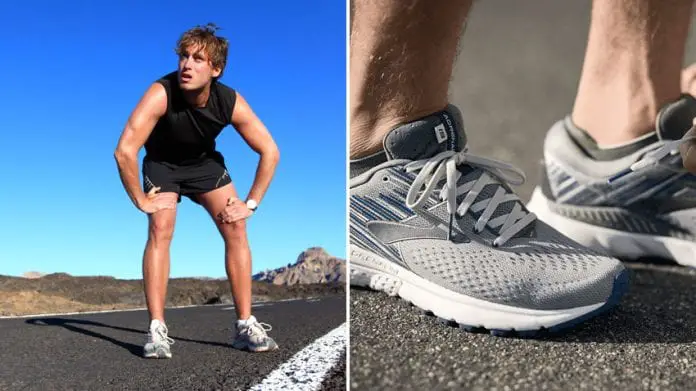So, you finally decide to get physically active and take up running for the first time. And that’s a good start since running not only helps to boost your immune system but also relieves stress and burns off extra calories. But before you get all started, here are the 6 Common Running Mistakes Newbies Should Avoid.
1) Picking The Wrong Shoes
Here’s the thing about shoes: not all of them are created equal. Which is why shoes and sports stores commonly label their footwear under different categories such as walking, basketball and cross-training. The same also goes for running shoes. You definitely need the right pair to make your running or jogging routine as injury-free as possible. Besides, running shoes — especially the good ones — has ample cushioning pad to help absorb the shock as your feet hit the pavement or concrete surface while running or jogging. Assuming you end up putting on your sneakers that are meant for leisure, you’ll risk getting injuries like bruised toes, aching feet and fractures.

2) You Neglect Drinking Enough Water
Water plays an important role when it comes to a workout and that includes running and jogging. Which means it’s crucial that you fuel yourself with enough fluid before, during and after your running session. All of this matters because it helps to prevent you from getting dehydrated. And when you are dehydrated, you will be prone to muscle spasms, cramps or in worst-case scenarios, suffer from heatstroke. So, how much should you drink? According to Runner’s World, it is advisable to drink approximately 236 ml to 473 ml one to two hours prior to the running/jogging session, followed by another 118 ml to 236 ml right before you begin. Then, try to aim at least 147 ml of water every 20 minutes during a run. Finally, don’t forget to fuel up after your run with enough fluid (plain water, fresh coconut water and sports drink are your best bets).

3) You Don’t Really Care About Warming Up
Getting all excited on your first day of running? Well, good for you. But if you are thinking of starting running without even considering to warm up beforehand, you’re making a huge mistake. Warm-ups are important to get both the body and muscles all set for a strenuous workout like running. Besides, your muscles are usually tightened if you spend most of the time sitting at work or inactive. Think of the warm-up as a physical act of “telling” your muscles that it’s time to turn on for activity. When you stretch your legs just enough, you are doing your muscles a huge favour while preventing the likes of cramps and spasms.

4) You Are Not Breathing The Right Way
Do you find yourself having difficulty catching a breath while running? Well, you may have to examine the way you breathe. That’s because inefficient breathing can cause runners gasping for air. Always ensure you are breathing through your mouth and nose while running. Slow down if you need to and try breathing from your diaphragm or belly instead of your chest to avoid workout-related abdominal pain known as side stitches.

5) You Are Not Wearing The Right Clothes
Just like wearing the right pair of shoes designed for running, the same also goes for your clothes. If possible, avoid wearing cotton T-shirts since it retains moisture when it gets wet from sweating. This, in turn, causes your shirt to feel heavy and increasingly uncomfortable. Not to mention the dampness can cause unwanted chafing and friction. To ensure a comfortable run, look for synthetic fabrics capable of wicking the sweat away from your body while keeping you dry such as DryFit, nylon and polyester.

6) You Keep Running Even If You Are In Pain
Thinking that the familiar “no pain, no gain” motto applies to everything? Not really. Not especially if you are suffering from pain while running. The kind of pain that hurts your body, which you shouldn’t ignore at all. Learn how to listen to your body and stop running if the pain occurs. Give yourself enough time to recover and see if the pain subsides. But if it doesn’t, it would be wise to seek medical assistance from your doctor to determine the cause.
















